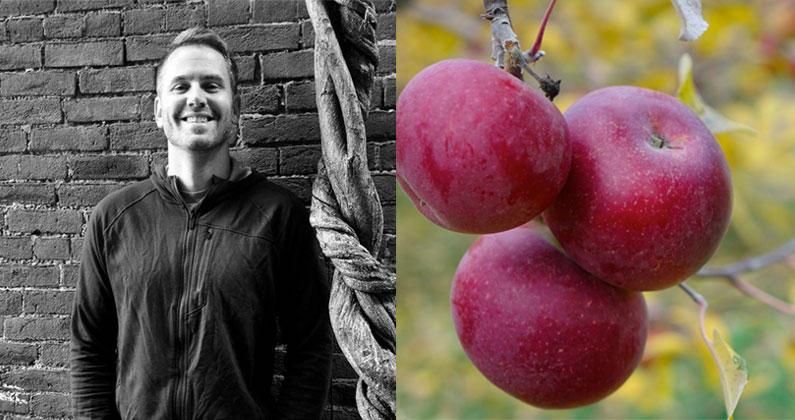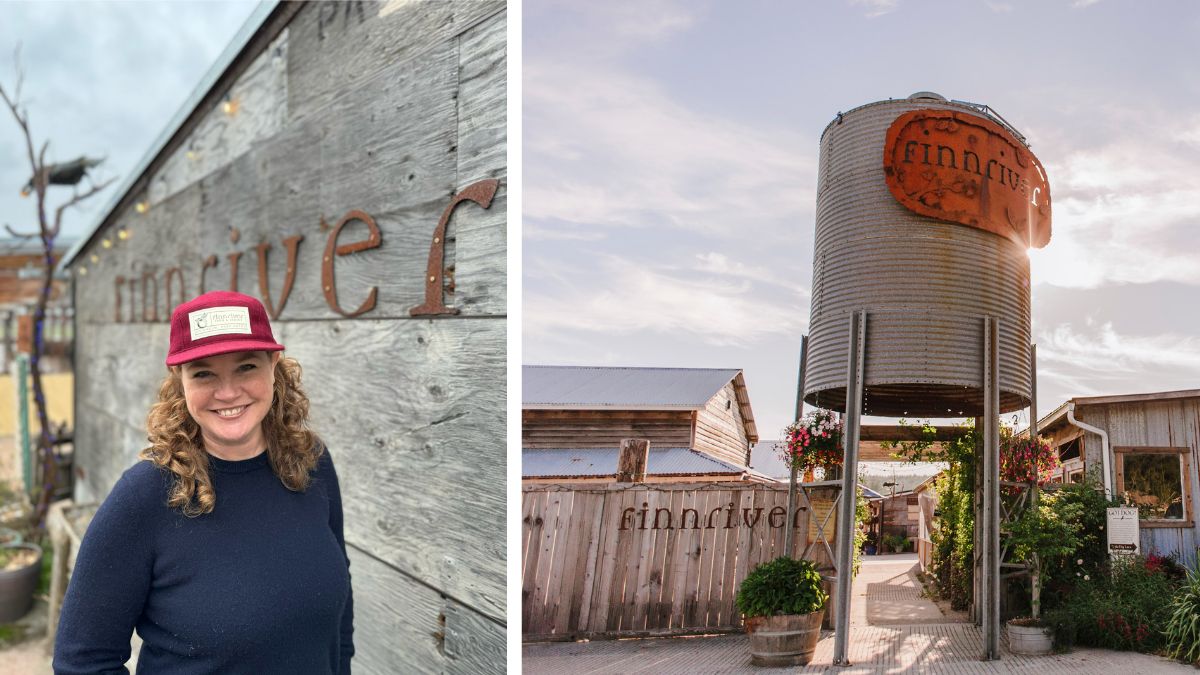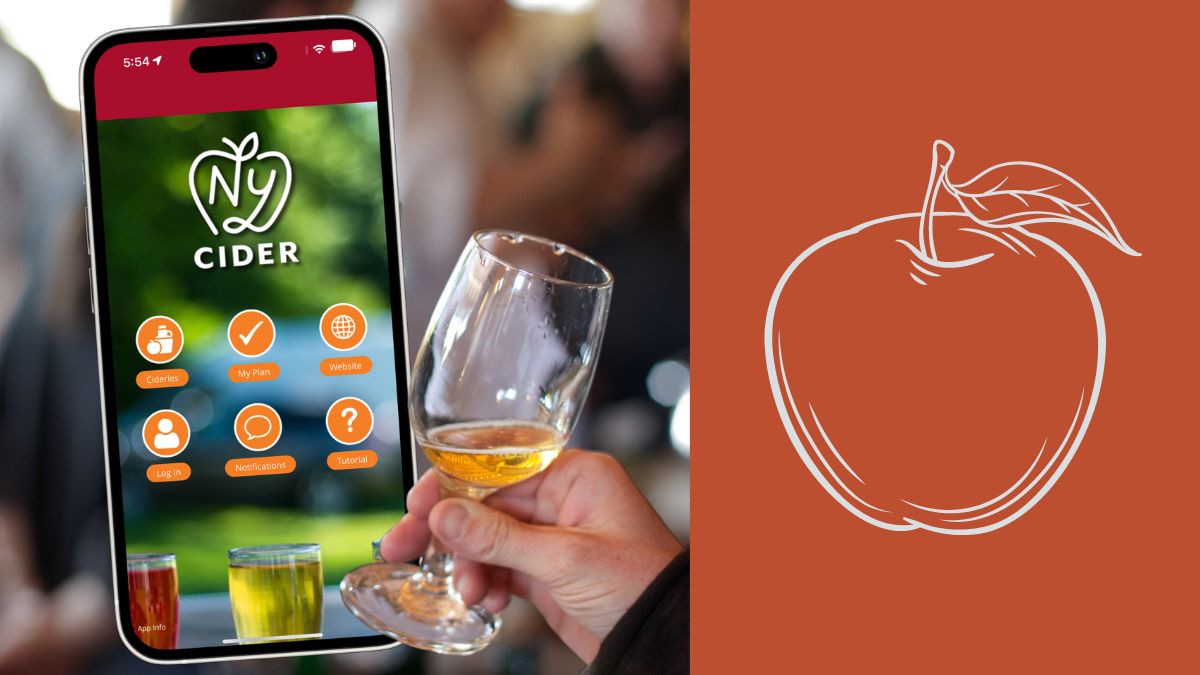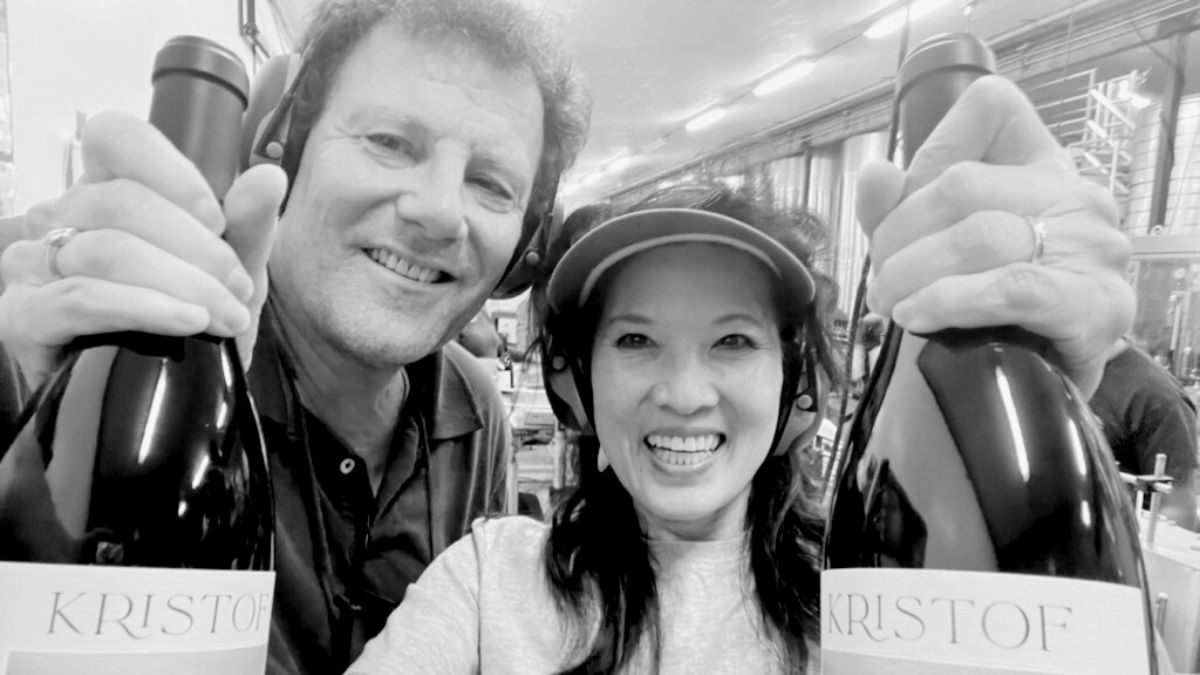Nick Gunn is a man who wears many hats. Gunn’s journey to becoming a founding member and president of The Cider Institute of North America is unique, quirky and downright interesting.
“I married into wine royalty,” Gunn chuckles when asked about how he got into the cider game.
While working for the U.S. Forest Service, Gunn met his future wife, Mimi Casteel, who was the daughter of Willamette Valley winery Bethel Heights co-owners Pat Dudley and Ted Casteel. “We were traveling around the country, hiking and doing research but we realized we couldn’t do it forever,” Gunn says. “So we decided to try our hand working at the family business.”
This effort in the family biz didn’t last for long: Gunn says there simply wasn’t enough work for them and they needed to focus on something different. Both botanists by trade, the couple knew they wanted to cultivate something, so they ditched grapes and opted for apples in 2003.
The original plan was to sell cider apples to cidermakers, staying clear of fermentation. After the realization they wouldn’t make enough money selling three acres of cider apples, it was decided they would craft hard cider. “We ended taking [over] a 300-case cidery from Culver, Oregon, and moving it to Salem,” Gunn explains. “In 2005 we had it rebranded to Wandering Aengus Ciderworks and then in 2008 we started Anthem Cider.”
Last year, Gunn sold his ownership stake in the duo of cideries in order to focus full-time on the fledgling Cider Institute and his cider consulting business, BenchGraft.
“I do miss Wandering Aengus and Anthem, and it wasn’t an easy decision for me to decide to leave,” Gunn says. “But, I believe I have followed what my strengths are, and that is cider education and helping people with business start-ups.”
Through BenchGraft, Gunn guides prospective cidermakers through various stages of development. His consulting services focus on everything from building a substantial business plan to brainstorming ideas for future cider flavor profiles.
Gunn says he enjoys helping cider companies in this way, and although it is different than what he started out doing in the industry, he sees this as the right path for him now. “It’s so cool because every company I work with is unique in their own way,” he adds. “It makes it really fun because each day I could be doing something completely different.”
The Cider Institute of North America, which formed a little under a year ago, is another project of Gunn’s. The institute’s mission is to form partnerships with cidermakers, industry professionals and educational organizations in order to promote better education and awareness within the budding cider industry, he says. The nonprofit organization hopes to establish a bigger curriculum for cider education within colleges, universities and other institutions, and they are already working with Oregon State University and Cornell University.
“For now the goal is to form these partnerships and push cider education and research,” Gunn says. “For the long-term, we want to create a brick-and-mortar facility for cider education, research and development.”
Now with his hands mainly on the educational and business aspects of ciders, Gunn might be hanging up his hat for cidermaking and, instead, he’s started to ferment other things in his free time. Kefir, sauerkraut and kimchi are the latest home projects bubbling and keeping him busy in his downtime.
“Personally, I am very excited about making sauerkraut and kimchi, but Mimi doesn’t like the smells too much,” he says with a laugh.
Is a Nick Gunn kimchi-making business the next venture for the entrepreneur? Who knows, after all he didn’t start growing apples with the intention of making cider, but look where he is now.






